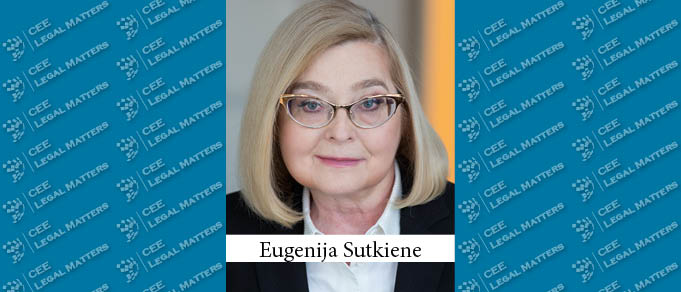In my career, I have lived through four crises. In 1991, when I started a legal business, there was a total economic collapse, with a shortage of the most basic essential goods – no furniture or computers, or even proper light bulbs for the office. Then there was the ‘Russian’ crisis of 2000, a crisis of foreign currency and the ruble. The one of 2008-2010 followed. And now we have the COVID-19 pandemic – perhaps not so much an economic crisis as one arising from a climate of uncertainty.
It is important, however, to realize that a crisis is an opportunity if we can adapt to it quickly. With more than 30 years of experience, I can say that if you do not give in to panic, manage to mobilize yourself, and take the right course of action, you can learn a lot from every crisis and even profit from it.
The Pandemic as a Catalyst for Change
Looking back at the last two years, I see many significant changes that were long-overdue in the legal services industry and which, thanks to the pandemic, have finally taken place. I would say that most of the Baltic law firms had managed to react and adapt quickly, employed various IT products to work and reach out to their clients and teams, as well as hold cross-border seminars and conferences. As the Baltic IT sector is very advanced, we quickly managed to keep providing quality services while optimizing our time. Most of us made a big leap in improving IT skills, with lawyers becoming as proficient in IT as other professions (the prevailing common perception was that being tech-savvy was not as important for lawyers).
We also found extra time to dedicate to our clients – to improve or even re-establish lawyer-client relationships. Clients are our assets. We work for them and on their behalf, and, in this context of uncertainty and stoppage of sorts, we have learned to listen to them more attentively and be even closer to them. We kept our clients informed about the latest regulatory changes, took more interest in how they were doing, and answered the most varied of questions from them, at almost any time of the day (or night). Sometimes we simply showed personal support, as they also very much needed that as well. The interaction became much more individualized and personal. There was no time left for formalities – matters needed attention here and now. This has been a time of true, sincere loyalty. Our efforts to stay close to clients generated more work and a steady increase in revenues for most Baltic firms.
The third good thing was an increase in cost efficiency. Unable to attend global conferences, regularly go on roadshows, or spend a lot of money on expensive marketing and business development events, we found new ways to reach out and stay in touch with our global clients, partners, and colleagues. With the help of technologies, physical distance essentially lost its significance, which saved a lot of money.
Finally, we realized how little value there is in the traditional trappings of the law profession, like spacious and shiny offices. As a result, more and more law firms are forgoing large offices and considering letting lawyers work remotely, switching to open spaces, or letting lawyers work from the office on a rotating basis. Many law firms are reconsidering their office rental policy, from a work flexibility and financial perspective.
Organizational Culture – a Critical Factor in Times of Uncertainty
Nonetheless, remote work has brought some challenges to maintaining the cohesiveness of an organization. Thus, most firms have naturally given this issue special attention. We have seen examples of moving to activities of a different format: distance events, trainings and seminars, special summer outings between the quarantines, etc. Managers have also arranged more regular follow-up calls, both at a team and an individual level. They had to find a sensible way to divide their attention between clients and employees because both are equally important in this business.
Partners also became closer, due to the need to communicate more intensively. I think that, during the pandemic, internal communication within firms has improved dramatically. This was very much needed – it glued teams together.
I can proudly say that Baltic law firms have become stronger because of this crisis as they adapted quickly, found ways to adhere to the needs of their clients and teams, and embraced new technologies. Finally, during the pandemic, most of the region’s law firms were actively helping groups in their community in real need, either through providing funds or pro bono services, which reaffirms the maturity and responsibility of players in our industry.
By Eugenija Sutkiene, Founder and Senior Partner, TGS Baltic
This Article was originally published in Issue 8.9 of the CEE Legal Matters Magazine. If you would like to receive a hard copy of the magazine, you can subscribe here.
